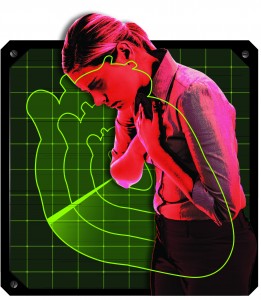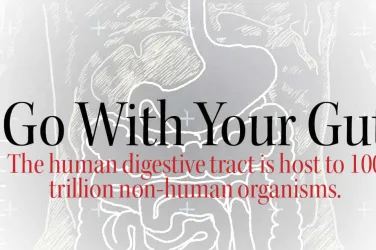By Anna Charles
Does this movie scene sound familiar? A man starts to feel uncomfortable and clutches his left arm. Soon, he grips his chest feeling pressure and pain, staggers and falls to the floor. While “Hollywood heart attack” symptoms often occur, did you know that around 20 percent of heart attacks are nothing like this? They’re called silent heart attacks, and most people who experience them, have no idea. Instead, they brush off hard-to-distinguish symptoms, attributing them to something else, such as indigestion or the flu. Afterward, they go about their lives as usual, without getting immediate medical treatment (that can minimize heart muscle damage), taking medication or making lifestyle changes that could help prevent a second heart attack or heart failure.
Are You The Victim Of A Silent Heart Attack?

Several methods can be used to help determine if you have suffered a silent heart attack. Victims are often shocked to discover a potential problem during an annual physical when their EKG (electrocardiogram) results appear abnormal. Blood tests can also indicate a heart attack has occurred. When cells in the heart die, they release enzymes into the blood called biomarkers. Measuring the amount of these biomarkers in the blood can indicate heart damage.
Did you know that a woman is around six times as likely to die of heart or vascular problems as of breast cancer? Women are also more likely to have less clear-cut heart attack symptoms than men, although it can happen to both.
If a blood test reveals heart damage biomarkers or your EKG results are abnormal, your doctor may recommend a nuclear heart scan to check for damage to your heart muscle. This test uses radioactive tracers to outline the heart chambers and major blood vessels leading to and from the heart. Cardiac catheterization and coronary angiography are also used to detect heart damage and detect blockages.
Silent Heart Attack Warning Signs & Symptoms
A heart attack occurs when the supply of blood and oxygen to an area of the heart muscle is blocked, often by a clot in in the coronary artery. Warning signs vary from person to person. If you have lingering, hard-to-pin down symptoms, you may be the victim of a silent heart attack. Don’t be embarrassed to go the emergency room or seek immediate medical attention. It may save your life!
Ambiguous heart attack symptoms can include:
- unexplained dizziness/light-headedness
- shortness of breath
- nausea and indigestion, heartburn
- sudden upper back or shoulder pain
- sudden fatigue
- confusion









